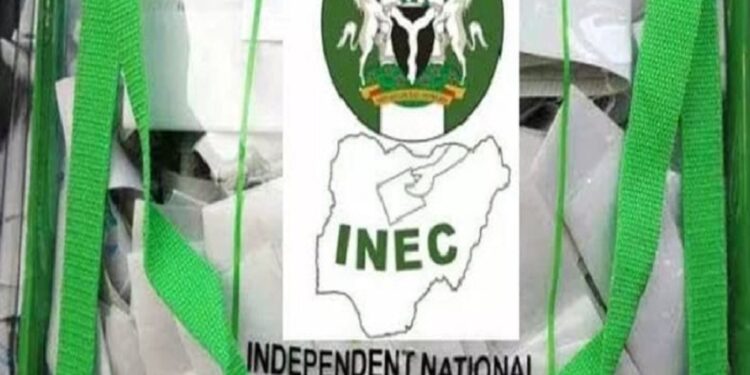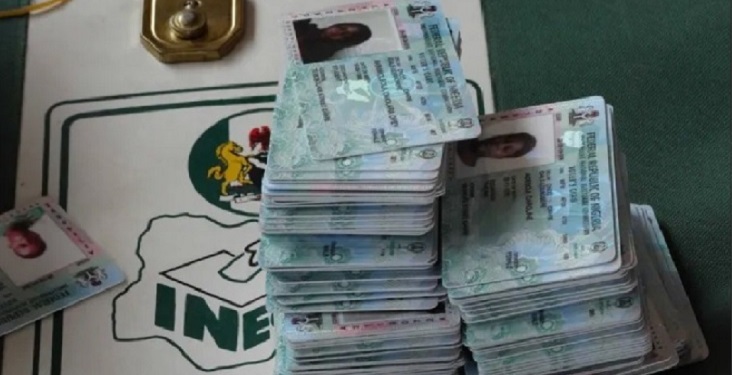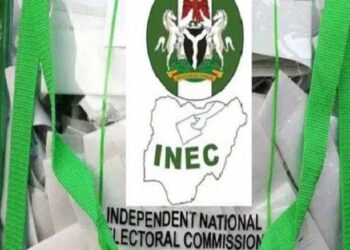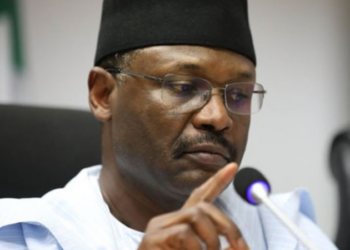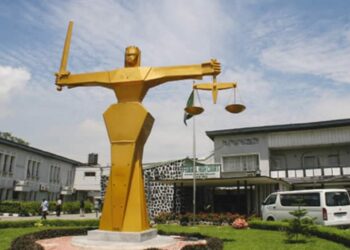The by-elections held across the country last Saturday in 16 constituencies across 12 states, in terms of the organization, the process and outcomes would seem to confirm one painful truth, namely that Nigeria’s democracy is still inchoate, tentative, fledgling, and that we are not yet anywhere near the target of democratic consolidation in Africa’s largest democracy.
Students of Nigeria’s political history would readily recall that these were phrases used to describe and define Nigerian democracy after the return to democratic rule in 1999.
Nigeria had been under the clutches of military dictatorship for the better part of its life as an independent nation (January to July 1966; August 1966 to July 29, 1975; July 29, 1975 – February 13, 1976; February 13, 1976 – October 1, 1979; December 31, 1983 – August 27, 1985, August 27, 1985 -August 26, 1993; 1993 – 1998 and 1998 – 1999. Over a period of 39 years, there were brief, eventually truncated moments of democratic rule which occurred between 1960 -1966, 1979 – 1983, August 26, 1993 – November 17, 1993.
With the annulment of the Presidential election of June 12, 1993, considered the freest and fairest in Nigerian history, and the isolation of Nigeria within the international community, the populace turned against the Nigerian military, which under General Sani Abacha bared its fangs and imposed a reign of terror on the people.
The people revolted against the military establishment, blaming soldiers for their authoritarianism and everything that may have ever gone wrong with Nigeria. Between General Ibrahim Babangida and General Sani Abacha, the Nigerian military was cast in the mould of an anti-people establishment that needed to be removed from governance.
The death of Chief M.K.O. Abiola in detention, that is, Abacha’s gulag, further inflamed passions, and the people were more urgent in demanding the exit of the military. General Abdusalami Abubakar, who succeeded General Abacha, had his work cut out for him: to hearken to the people’s demands and process the transition to democracy programmes which the military had been toying with, adopting all kinds of subterfuge. On May 29, 1999, the people’s aspiration was achieved with the swearing in of Chief Olusegun Obasanjo of the People’s Democratic Party (PDP), a former General, as President.
The people were elated. They hailed the return to democratic rule as the second liberation. They dismissed soldiers as villains. They swore that the worst form of civilian rule is better than the best form of military rule. Civilian rule was seen as Nigeria’s “second liberation”, the first being freedom from British imperialism. It is to the credit of Nigerians that for the past 36 years, the people have kept faith with democracy. But what is the quality of achievement? How have we fared? Democratic rule would seem to have brought a lot of development and growth, especially in the once troubled South South region, the civic society is relatively more open, with the people empowered to ask questions about governance and accountability, but after the various elections since 1999, the shadow of the military persists, and it may not be too cynical to argue that Nigeria’s democracy is still a work in progress, yet to mature and continues to raise fresh concerns about the Nigerian character.
Elections are central to the democratic process, and the elite bargain. Military rulers impose themselves on the people through the path of violence, namely, coup d’etats.
Civilian rulers acquire their legitimacy through the ballot box, a representative process that plays up the people’s right to choose from competing parties and candidates and determine their own future guided by the rule of law. Elections in Nigeria since 1999 have remained problematic, prompting repeated calls for electoral reform and the emplacement of a framework to guarantee integrity and accountability to achieve the goal of free and fair elections. The search for this ideal has been elusive.
Since 1999, every election season has been followed by debates about the need for reform to correct issues arising, including operational inefficiencies, electoral fraud, rigging, violence, and violation of electoral laws. The tragedy is that the more reforms are introduced, the political elite and the state institutions, and the people themselves always find a way to circumvent well-intentioned attempts to improve the democratic space. The Electoral Act of 2022, used for the 2023 general election, considered for example to be the most progressive framework since 2001, only resulted in greater uncertainty, especially with the electronic transmission and collation of results, BVAS, IREV, and the INEC portal.
Since that general election, and the litigations that followed, both local and international election monitors and observers have been resilient in urging that more reform is needed ahead of the next general elections in 2027.
They argue, at various fora, including interactive sessions with the National Assembly, that electoral reform must be treated as a national emergency by the Tinubu administration. Some of the recommendations include single-day voting, the proper definition of electronic transmission, affirmative action for women, statutory enactments on technological innovations such as the INEC Election Results Viewing (IREV), BVAS, and Smart Card Reader, as well as the establishment of a National Electoral Offenders Commission. It goes without saying that an electoral system that works would build trust in the electoral system and strengthen the electorate. The prompt punishment of electoral crimes will check the reign of impunity during elections.
The urgency of the matter was signposted in the by-elections of Saturday, August 16. The by-elections were as a result of deaths, resignations, or court-ordered re-runs after the 2023 general elections, conducted in line with Section 28(3) of the Electoral Act, 2022. By-elections by their nature are smaller in scope, restricted as they are to specific constituencies – in the present instance, 16 out of 360 Federal Constituencies and 109 Senatorial districts, 12 states out of 36 and the Federal Capital Territory and 32 Local Government Areas out of 774 LGAs.
A by-election is also necessarily an off-cycle, supplementary election, thus reducing pressure on the Electoral Commission. The main thing to note is that since 1999, both by-elections and general elections have all presented the same ambiguities and controversies. Nothing has changed. Rather, things are getting even more complicated. According to INEC results, the APC, the ruling party, won 12 of the constituencies out of 16, APGA won in two, PDP won in one, and NNPP in one.
This is very much after an established pattern: in Nigeria’s political space, the incumbent ruling elite either at the Federal or state level assume that it is their divine right to win every election that is conducted under their watch. Hence, sitting state governors would always win almost every seat during local government elections. Elections at the Federal level are greedily arranged for the party in power at the centre.
This is the simple logic behind the power game and conflict at the heart of Nigeria’s democratic process. Since the announcement of the results, the opposition parties have been up in arms. The PDP, Labour Party, the African Democratic Congress (ADC), the Coalition of United Political Parties (CUPP), and others have protested that the elections were rigged and that there were widespread cases of electoral fraud, vote buying, manipulation, failure of INEC and other institutions.
In Kano, there is a dispute over the Shanono/Nagwai state constituency by-election and the Ghari/Tsanyawa state constituency. APC and PDP have, however, also called on INEC to cancel the by-elections in the two constituencies in Kano. In Edo, the PDP rejects APC’s victory, citing irregularities with BVAS. In Anambra, APGA won in Anambra South Senatorial district and Onitsha North I state constituency by-election. The party is accused of vote-buyingto rig elections by other political parties.
In Kaduna state, PDP says its members were abducted. In Edo Central Senatorial District, Governor Monday Okpebholo complained about malfunctioning BVAS machines. In Iperu-Remo, Ogun State, a Mitsubishi van was intercepted and a sum of N2. 5 million was found on the three occupants of the bus, money which they said they had collected from a man named “Political Solution.”
There were also threats of actual violence. In Nnewi South, the Deputy Governor and the Commissioner for Environment escaped being lynched by a mob who accused them of vote-buying. A total of over 333 thugs were arrested in Ogun, Kano, and Kaduna states. In Kaduna state, the APC recorded a clean sweep as it also did in Taraba, Niger, Jigawa, Ogun, Edo, Adamawa, and Kogi.
The courts would soon be dragged into the brawl. In Adamawa, the PDP is poised to go to court over the Ganye state constituency by-election. It also accuses the police of complicity. Chairman of the Adamawa state chapter of the ruling Peoples Democratic Party (PDP), Shehu Tahir has accused Assistant Inspector General of Police, Taiwo Adeleke of providing a cover for the APC. The PDP Chairman is so incensed he is even threatening that if the Ganye by-election is not reversed by a court of competent jurisdiction, “democracy will come to an end in 2027.”
We hope not, as that is not the aspiration or the hope of most Nigerians. Nigerians want an election process that will deliver good governance, not a process that is on sale to the highest bidder. The lesson of the past is that even the best-crafted electoral framework will not work unless the people themselves are ready. The people may claim that they love democracy, but they are not prepared for it. The professional political class is desperate, self-serving, and greedy. Our politicians and their Godfathers want power, not to serve the people, but to gain access and control of state resources.
In a prostrate economic environment, where there are few opportunities for a large population, political jobs, either directly or by association, have become the surest means of survival. The glamour of political office, the perks, and the title provide enough reason for the thuggery and the psychotic obsession with winning by any means possible. Every election season is a business cycle for everyone seeking to make a small fortune from the politicians. The electorate have become so cynical and distrustful of the political elite, they would readily sell their votes. They collect money from whoever is willing to pay and at the end vote for the highest bidder.
They are unapologetic; they fail to see that it is the future of the country that they are trading away by selling their conscience. More efforts should be invested in voter education. There is poverty in the land, but the people have lost their conscience. The institutions and the security men have their own motivations, too. In Nigeria’s strange political arrangement, electoral umpires accept that their job is to help the incumbent party or man in power win. The security agencies do not work for the state; they serve the man of power. The aggrieved is advised to “Go to Court”, with both parties knowing that it is better to be declared the winner in a Nigerian election than to be the loser and expect justice from the courts.
INEC needs to be overhauled, its operational processes need to be reviewed, and the word “Independent” in its title must become meaningful. Those who recommend a single-day voting during general elections can now see that it would be impossible to adopt such a format for Nigerian elections. If elections in just 16 constituencies in 12 states can be this problematic, the chaos of having elections in one day can be well imagined.
Electoral offenders must be sanctioned to check their impunity. After every election, the security agencies claim to have arrested many offenders, but there is hardly any further report about their prosecution or conviction. The offenders, being agents to influential political figures, often escape the full wrath of the law. The impunity is so entrenched that known thugs or political enforcers are usually rewarded with patronage and positions by their sponsors. The landscape of power in Nigeria is sordid.
Those who are familiar with the subject have expressed the view that the August 16 by-elections offer intimations of what to expect in 2027, that is, a bellwether. The ruling APC, besieged on all fronts by a conspiratorial band of opposition politicians, has just sent a signal that it would be difficult to uproot it from power. The tussle would be more intense in 2027, but the basic elements remain the same. The Presidency has issued a statement commending INEC for conducting a hitch-free by-election, which was devoid of violence. But that is not the reading of the opposition parties.
The Tinubu administration has been talking about legacy projects – the Lagos-Calabar Highway, six bus terminals across six geo-political zones (which is wasteful by the way), and the digitization of the education system. In order of priorities, the best legacy President Bola Ahmed Tinubu can leave behind is to work towards ensuring a free level playing field in the next general elections, and enhance the integrity of the electoral process. He must show that his ambition is not worth the agony of other Nigerians. It is up to him to show the way forward, and the people may perhaps learn from his example.

